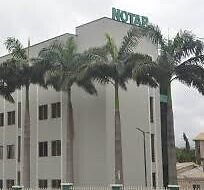Nigeria’s electric vehicle (EV) market is on a rapid growth trajectory. With an estimated 15,000 to 20,000 electric vehicles now on the road in 2025, the country is making impressive strides in its transition to cleaner transportation. According to Climate Scorecard, local companies are playing a pivotal role in accelerating this movement.
One of the notable players in the Nigerian EV ecosystem is NEV Electric, which has posted $14 million in revenue in the past 14 months. The company is now focusing on expanding its charging infrastructure, planning to install 300 charging stations in Abuja and Lagos by August 2025. By the end of 2025, NEV Electric intends to manufacture 2,000 high-capacity EVs and 10,000 micro EVs, which will contribute significantly to the country’s local EV ecosystem.
In addition to NEV Electric, Spiro, a company known for its electric bikes, is also making waves. Having already shipped 22,000 bikes,
recently secured $50 million in debt financing to fund its plans for the future. The company aims to deploy 140,000 electric bikes in Uganda over the next five years and reach 1.2 million bikes in Kenya during the same period. This expansion signals a strong push towards electric mobility across the region.
Despite these encouraging developments, the road to widespread EV adoption in Nigeria is not without its hurdles. The high upfront cost of electric vehicles remains a significant barrier for many potential buyers. Additionally, the limited availability of charging infrastructure continues to raise concerns about the practicality of owning an EV, especially in urban areas outside major cities like Lagos and Abuja.
However, government initiatives are helping address these challenges. Tax incentives and import duty exemptions are designed to make electric vehicles more affordable and attractive for consumers. These policies are not only aimed at supporting the growth of the local EV market but also encouraging manufacturers to invest in Nigeria’s green transition.
Looking ahead, Nigeria’s electric vehicle market is projected to grow at a compound annual growth rate (CAGR) of 6.8% from 2025 to 2031. This growth is expected to be driven by increasing environmental awareness, technological advancements, and supportive government policies that create a more conducive environment for the EV sector.
The Nigerian government has also committed to an ambitious climate agenda, including a pledge to make all new cars and vans sold in the country zero-emission by 2040. This goal is in line with global efforts to combat climate change, particularly through the COP26 Zero Emission Vehicle Declaration, which has already seen over 30 countries pledge to phase out fossil fuel-powered vehicles.
Nigeria’s commitment to achieving zero-emission vehicles by 2040 is part of its broader strategy to meet its Nationally Determined Contributions (NDCs) under the Paris Agreement. These include reducing greenhouse gas emissions by 20% unconditionally and up to 47% with international support by 2030.
For Nigeria to achieve its ambitious zero-emission target, continued investment in EV infrastructure, consumer education, and policy reforms will be essential. The road ahead may have challenges, but with local innovators leading the charge, Nigeria is well on its way to embracing a sustainable, electric future.
- NOTAP Flags Rising Revenue from Local Software Creations

- Wait, Your Favourite Athlete Is Now a VC? Meet 10 Sports Stars Who Said “Forget Endorsements, I’m Backing Startups”

- Nigeria Opens First National AI Centre at the University of Jos

- OpenAI Introduces ChatGPT Health for Wellness Support

- Why African Startups Need to Start Building on the Continent

- NITDA Expand Digital Training Programme for One Milion Nigerians














One reply on “Local Manufacturers Lead Charge Towards Zero-Emission Future”
[…] said Caroline Wanjihla, Bolt Africa’s spokesperson. “We’re betting on driver economics. EV tricycles have lower running costs. And with our lease model, drivers can own their vehicles in two […]